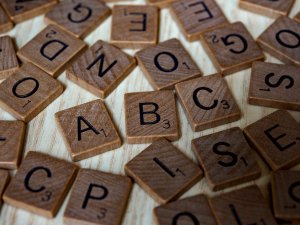The Tyranny of the Q Without U: When Language Plays Hardball
Author: Brian Bowman
Date Published: 10 June 2025
For most Scrabble players, the letter Q is a high-stakes gamble. It dangles before you with its juicy 10-point promise, like a chocolate clair in a shop window-enticing, indulgent, and inevitably followed by regret. Why? Because Q is codependent. It's the clingy partner of the English alphabet, always dragging around its vowel chaperone, U, like a toddler gripping its mother's leg. And when U doesn't show up in your rack? Well, welcome to existential despair, spelled Q-I.

Yet in recent years, a subtle rebellion has emerged. A quiet coup. Players have begun to embrace the so-called Q without U words: "qi," "qat," "qoph," "faqir"-once the province of dictionary dust and linguistic trivia, now wielded like tactical missiles on competitive boards. These aren't just words; they're survival strategies. Battle-tested, eyebrow-raising, and more than a little heretical.
"Qi," in particular, is now so common that it's arguably lost all spiritual resonance and become a form of lexical currency. Ironically, a word that represents the flow of vital life force is now just a convenient tile dump that keeps you in the game. Meaning, once again, takes a back seat to maneuver.
This isn't a lament. It's an observation. Scrabble, like society, rewards those who adapt to arbitrary constraints with creativity, compromise, and a hint of cynicism. You might want to write a sonnet with your tiles, but the board demands a two-letter word wedged into the side of "zen." You might crave profundity, but you'll settle for "za."
What's fascinating is that this tactical efficiency-this minimaxing of meaning-isn't a failure of the game. It's the essence of it. Scrabble teaches us how to dance with limitation. How to turn constraint into possibility. How to wring 33 points out of seven random letters and call it victory.
So next time you pull a Q and feel the absence of its faithful U, don't curse the rack. Embrace it. See it not as a problem, but as a provocation. And remember: in Scrabble, as in life, the things that trip us up often become the stepping stones to something worth celebrating.
Just make sure you've memorized the two-letter list.